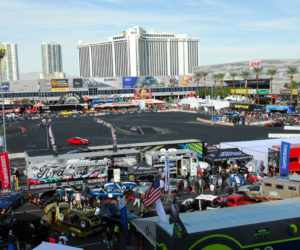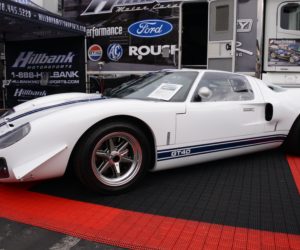
SEMA Threatens Legal Action Over Low Volume Act
By Dean Larson
Back in 2015, landmark legislation passed for our industry that would finally provide the legal framework for manufacturers to produce turnkey replica vehicles in the U.S. The Low Volume Motor Vehicle Manufacturers Act, passed in a $305-billion highway-funding bill, permits companies to sell 325 turnkey replica vehicles per year with emissions-compliant engine packages. But three years later, a single government agency, NHTSA, continues to hold up the implementation of the act. On November 1 of this year, SEMA announced that it is prepared to challenge the agency in court if immediate steps were not taken to implement the act.
The National Highway Traffic Safety Administration (NHTSA), is one of three government agencies involved in the act. NHTSA, the California Air Resources Board (CARB) and the Environmental Protection Agency (EPA) were given 12 months from the passing of the act to produce the relevant documents, recording systems and guidelines. While CARB has approved regulations and the EPA has written a draft guidance document approved by SEMA, NHTSA has not issued documents or even indicated that they’ve started working towards a solution.
“While the law was celebrated by industry and enthusiasts alike, NHTSA’s continued delays have frustrated replica car companies and consumers. The replica car provision was designed to be easy for NHTSA to implement, as it simply extends the common-sense approach to overseeing kit-car production that the agency has employed for decades,” says SEMA President and CEO Christopher J. Kersting.

As written in 2015, NHTSA was given 12 months to create a system where replica builders could register online and file annual production reports indicating they types and numbers of vehicles produced. Stuart Gosswein, SEMA’s senior director of Federal Government Affairs told us in an interview last year that SEMA has reached out to NHTSA several times, suggesting various measures that the agency could take to get the program up and running in the meantime. NHTSA has sited various difficulties, including staff changes and autonomous vehicle concerns, as causes for the delay.
Now, SEMA has stated that it is prepared to take NHTSA to court if immediate action is not taken to implement the law. Gosswein did indicate to Hemmings in an interview that it’s not SEMA’s goal to sue NHTSA, as it would be unlikely to move the process forward. SEMA has however drafted a complaint and intends to file it in federal district court if NHTSA does not act immediately.

Delays at NHTSA have hurt, if not stagnated the entire replica industry. At the 2016 SEMA Show, we listened to a panel of experts talk about the Low Volume Act, including Factory Five’s Dave Smith and Lance Stander of Superformance. Both of which indicated to us that they had made significant investments to ramp-up production for new turnkey sales.
Lance Stander of Superformance commented on the costliness of NHTSA’s delay, pointing to lost revenue and delayed production of new models. “The delays have cost us quite a bit here, with idle inventory and turnkey sales we’re missing out on. We also invested early in projects that would be covered under the Low Volume program, and have been unable to finalize them.”
SEMA plans to file their complaint to the federal district court in early December, unless NHTSA takes significant action. Regardless, SEMA officials remain hopeful that all guidance documents and procedures will be in place by January 1, 2019.
Check out our original coverage of the Low Volume Motor Vehicle Manufacturers Act for more information on the law.











Comments for: SEMA Prepared to Take Legal Action Over Stalled Low Volume Act
comments powered by Disqus